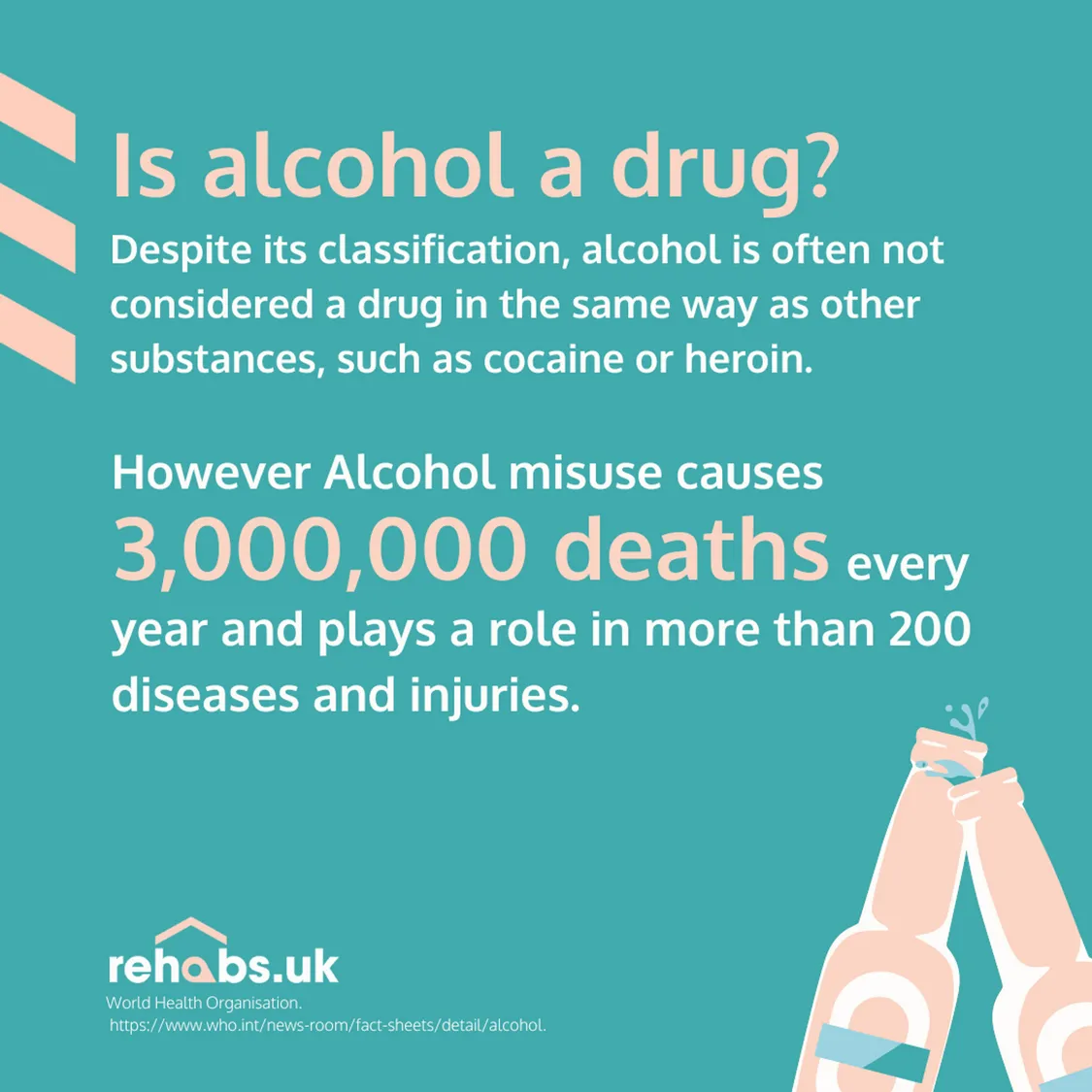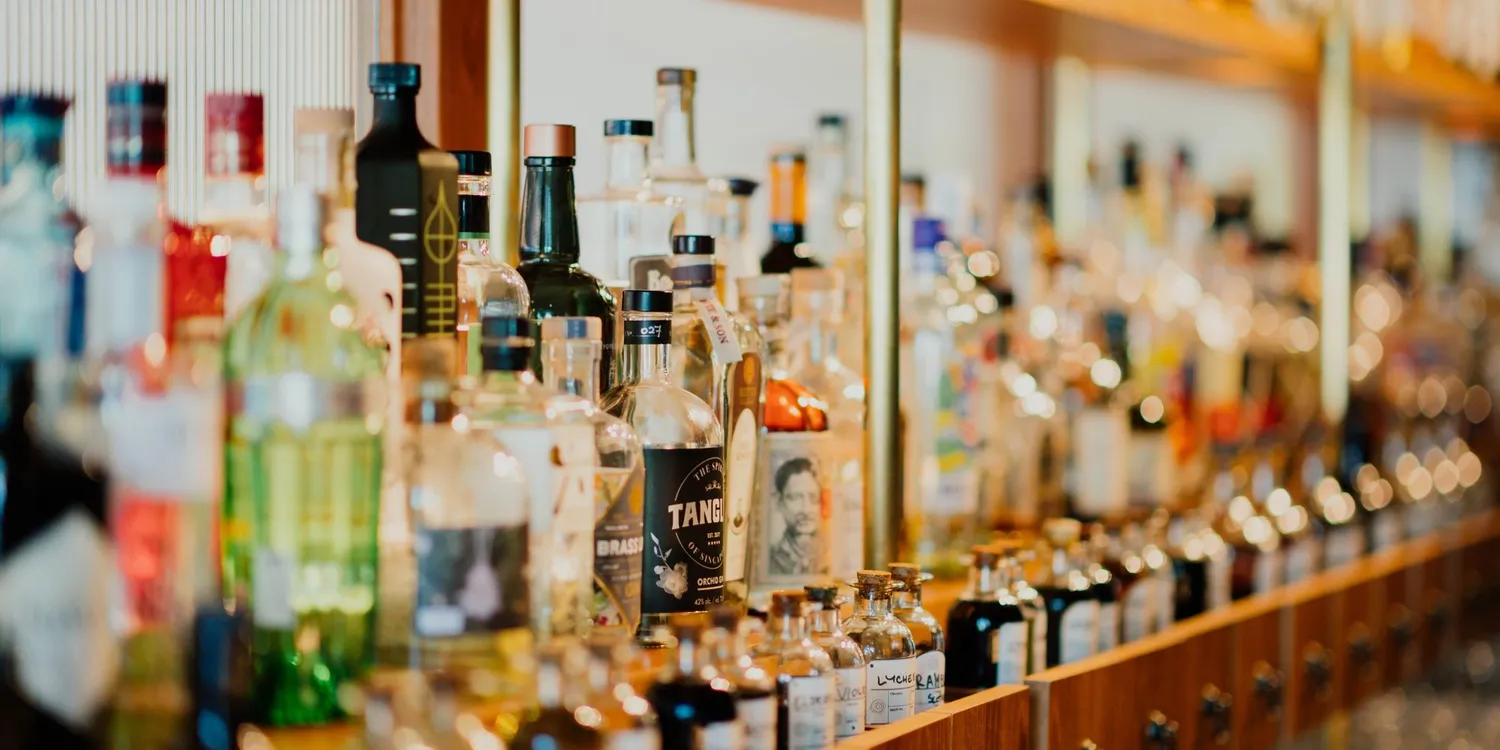19 Apr 2023
Is alcohol classed as a drug in the UK?
Yes, alcohol is classified as a drug in the UK. In fact, it is one of the most commonly used and abused drugs in the world. Despite this, many people do not think of alcohol as a drug, which can lead to misconceptions and misunderstandings about its effects on the body and the potential dangers associated with its use.
The definition of the word ‘drug’
According to the World Health Organisation, a drug is any substance that, when taken into the body, alters its functioning in some way. This can include prescription medications, over-the-counter drugs, and illicit substances like cocaine or heroin. By this definition, alcohol is clearly a drug, as it alters brain function and can affect a person’s behaviour and mood.
What makes alcohol a depressant?
Alcohol is classified as a depressant drug, meaning that it slows down the central nervous system and reduces brain activity. This is why people often feel relaxed, sedated, or even sleepy when they drink alcohol. In moderate amounts, this can be pleasurable and even beneficial for some people, but in larger amounts, it can lead to dangerous impairment and other negative effects. This could include depression, anxiety and other mental health conditions.
Does that mean it’s one of the most widely used drugs?
Yes, alcohol is one of the most widely used and abused drugs in the world. According to the World Health Organisation, alcohol is responsible for over three million deaths per year, making it a significant public health concern. Despite its widespread use, many people do not think of alcohol as a drug and may underestimate its potential risks and dangers.
Why don’t people think of alcohol as a drug?
There are a number of reasons why people may not think of alcohol as a drug. For one, it is legal for adults to purchase and consume alcohol in many parts of the world, which can lead to the perception that it is less harmful or dangerous than other drugs. Additionally, many people drink alcohol socially or as a way to relax or unwind, which can make it seem like a normal or even desirable part of everyday life.
When Annemarie Ward from Favor UK was speaking with Lester Morse during the Altered Attitudes podcast "Should people be given a choice to recovery" she said "I use that phrase very deliberately, 'alcohol and other drugs', because we seem to fall into this societal denial that alcohol is not a drug”
What makes alcohol addictive?
Alcohol can be addictive for a number of reasons. For one, it can stimulate the release of dopamine in the brain, which is a neurotransmitter associated with pleasure and reward. This can create a positive feedback loop in which a person continues to drink in order to experience the pleasurable effects of alcohol. Additionally, alcohol can lead to physical dependence, meaning that a person may experience withdrawal symptoms if they try to stop drinking.
With the rise of 0% alcohol, there are many alternatives to drinking an alcoholic beverage than there has been in the past.
How does it affect the body?
Alcohol affects the body in a number of ways. In addition to its effects on the brain, it can also cause liver damage, digestive problems, and an increased risk of certain types of cancer. Prolonged alcohol use can also lead to high blood pressure, heart disease, and other serious health problems.
Alcohol withdrawal
Alcohol withdrawal can be a dangerous and even life-threatening condition. Symptoms can include seizures, hallucinations, tremors, and other physical and psychological symptoms. For this reason, it is important for anyone who is addicted to alcohol to seek professional medical help before trying to detox from alcohol alone.

The dangers and health risks of alcohol addiction
The dangers and health risks of alcohol addiction can be significant. Prolonged alcohol use can lead to liver damage, digestive problems, an increased risk of certain types of cancer, high blood pressure, heart disease, and other serious health problems. Additionally, alcohol addiction can lead to social, financial, and legal problems, as well as strained relationships with loved ones. It's important to be able to spot alcoholism in your loved ones.
How to get help for alcohol addiction with Rehabs UK
If you or someone you know is struggling with alcohol addiction, it is important to seek professional help. Rehabs UK is a leading provider of addiction treatment services and can offer support and guidance to those in need. We offer a range of treatment options, including residential rehab, outpatient programs, and aftercare support. Contact our fully trained Treatment Advisors today!
